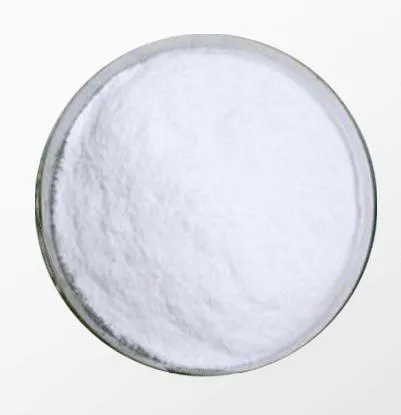Warning: Undefined array key "title" in /home/www/wwwroot/HTML/www.exportstart.com/wp-content/themes/1198/header.php on line 6
Warning: Undefined array key "file" in /home/www/wwwroot/HTML/www.exportstart.com/wp-content/themes/1198/header.php on line 7
Warning: Undefined array key "title" in /home/www/wwwroot/HTML/www.exportstart.com/wp-content/themes/1198/header.php on line 7
Warning: Undefined array key "title" in /home/www/wwwroot/HTML/www.exportstart.com/wp-content/themes/1198/header.php on line 7
- Afrikaans
- Albanian
- Amharic
- Arabic
- Armenian
- Azerbaijani
- Basque
- Belarusian
- Bengali
- Bosnian
- Bulgarian
- Catalan
- Cebuano
- China
- China (Taiwan)
- Corsican
- Croatian
- Czech
- Danish
- Dutch
- English
- Esperanto
- Estonian
- Finnish
- French
- Frisian
- Galician
- Georgian
- German
- Greek
- Gujarati
- Haitian Creole
- hausa
- hawaiian
- Hebrew
- Hindi
- Miao
- Hungarian
- Icelandic
- igbo
- Indonesian
- irish
- Italian
- Japanese
- Javanese
- Kannada
- kazakh
- Khmer
- Rwandese
- Korean
- Kurdish
- Kyrgyz
- Lao
- Latin
- Latvian
- Lithuanian
- Luxembourgish
- Macedonian
- Malgashi
- Malay
- Malayalam
- Maltese
- Maori
- Marathi
- Mongolian
- Myanmar
- Nepali
- Norwegian
- Norwegian
- Occitan
- Pashto
- Persian
- Polish
- Portuguese
- Punjabi
- Romanian
- Russian
- Samoan
- Scottish Gaelic
- Serbian
- Sesotho
- Shona
- Sindhi
- Sinhala
- Slovak
- Slovenian
- Somali
- Spanish
- Sundanese
- Swahili
- Swedish
- Tagalog
- Tajik
- Tamil
- Tatar
- Telugu
- Thai
- Turkish
- Turkmen
- Ukrainian
- Urdu
- Uighur
- Uzbek
- Vietnamese
- Welsh
- Bantu
- Yiddish
- Yoruba
- Zulu
Гру . 11, 2024 23:21 Back to list
Exploring the Benefits and Uses of Xylitol in Daily Life
The Benefits and Functions of Xylitol A Comprehensive Overview
In recent years, xylitol has garnered significant attention as a natural sweetener, largely due to its numerous health benefits and multifunctional properties. Derived from birch trees and other plants, xylitol is a sugar alcohol that is often used as a sugar substitute in various food products. While many are familiar with its sweet taste, the impacts of xylitol on human health and its various functions extend far beyond just being a sweetener.
Dental Health Support
One of the most notable functions of xylitol is its positive effect on dental health. Unlike regular sugar, which can feed harmful bacteria in the mouth, xylitol has been shown to inhibit the growth of these bacteria. Research indicates that xylitol reduces the levels of Streptococcus mutans, the primary bacteria responsible for tooth decay. By decreasing plaque formation and maintaining a balanced oral microbiome, xylitol contributes to a lower incidence of cavities and promotes overall dental health. As a result, many toothpaste and mouthwashes now include xylitol as an active ingredient.
Blood Sugar Regulation
Another significant function of xylitol is its impact on blood sugar levels. Xylitol has a low glycemic index compared to sugar, which means it causes a slower, more controlled increase in blood glucose levels. This characteristic makes it a suitable sugar alternative for individuals with diabetes or those looking to manage their blood sugar levels. Incorporating xylitol into the diet can help in reducing overall sugar intake without sacrificing sweetness, thereby promoting healthier eating habits.
Gut Health and Digestion
Xylitol also plays a role in digestive health. It acts as a prebiotic, serving as food for beneficial gut bacteria. This fermentation process can promote gut health by enhancing the growth of good bacteria, thereby improving digestion and overall gut function. However, it is worth noting that excessive consumption of xylitol may lead to gastrointestinal discomfort, such as bloating or diarrhea, as some individuals may experience difficulty digesting sugar alcohols. Moderation is key to reaping the gut health benefits of xylitol.
xylitol function

Weight Management
As individuals become increasingly health-conscious and seek alternatives to high-calorie sweeteners, xylitol has emerged as an appealing option. With about 40% fewer calories than sugar, xylitol provides a sweetening solution that can be beneficial for weight management. By substituting traditional sugars with xylitol, individuals can satisfy their sweet cravings while reducing their caloric intake. This aspect encourages healthier choices without the burden of excess calories.
Potential Antioxidant Properties
Emerging studies also point to the potential antioxidant properties of xylitol. Antioxidants are known for their ability to combat oxidative stress in the body, which is linked to various chronic diseases. While more research is needed to fully understand this function, the antioxidant effects of xylitol may provide additional protection against inflammation and cellular damage, contributing to overall health.
Culinary Versatility
Beyond its health benefits, xylitol is also valued for its culinary versatility. It can be used in baking, cooking, and as a sweetener in beverages. Its similar sweetness to sugar allows for easy substitution in recipes, making it ideal for those who are looking to reduce sugar without compromising flavor. Xylitol is often found in sugar-free gums, candies, and desserts, providing consumers with a variety of tasty options.
Conclusion
In summary, xylitol is more than just a sugar substitute; it is a multifunctional compound with a plethora of health benefits ranging from dental support to weight management. Its ability to promote oral health, regulate blood sugar, enhance gut health, and potentially provide antioxidant properties makes it an attractive option for health-conscious individuals. However, as with any additive, it is important to consume xylitol in moderation to avoid gastrointestinal discomfort. With its sweet taste and health-promoting attributes, xylitol represents a remarkable alternative in the quest for healthier lifestyles. As research continues to uncover more of its health functions, xylitol’s role in nutrition is likely to expand even further.
Latest news
-
Certifications for Vegetarian and Xanthan Gum Vegetarian
NewsJun.17,2025
-
Sustainability Trends Reshaping the SLES N70 Market
NewsJun.17,2025
-
Propylene Glycol Use in Vaccines: Balancing Function and Perception
NewsJun.17,2025
-
Petroleum Jelly in Skincare: Balancing Benefits and Backlash
NewsJun.17,2025
-
Energy Price Volatility and Ripple Effect on Caprolactam Markets
NewsJun.17,2025
-
Spectroscopic Techniques for Adipic Acid Molecular Weight
NewsJun.17,2025

